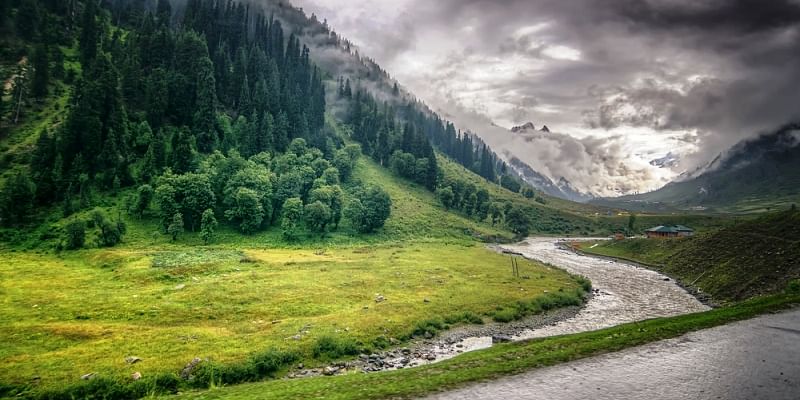The forests of Jammu and Kashmir which comprise around fifty percent of its geographical area are highly vulnerable to climate change, the fast-track development projects on infrastructure that is causing a stress on ecology is one of the major threats to it.
The official documents also state that the unregulated grazing and fragile ecosystems of Himalayas were also some of the major threats to the ecology and forests of Jammu and Kashmir.
The officials have mentioned some of the threats to forests of Jammu and Kashmir which reads, “UT of J&K is highly vulnerable to Climate Change and fast track development projects on infrastructure are causing stress on ecology.”
It also said that the unregulated grazing and fragile ecosystems of Himalayas were also posing threat to the forests of Jammu and Kashmir.
Overgrazing reduces the usefulness, productivity and biodiversity of the land and is one cause of desertification and erosion. Overgrazing is also seen as a cause of the spread of invasive species of non-native plants and of weeds.
The document also states that the low CAPEX-plan budget, inadequate mobility to frontline staff and lack of required infrastructure for forest protection were some of the weaknesses for the forest department.
Meanwhile, authorities have said that it aims to achieve a green cover of two-third of the geographical area with a view to provide ecological security and ecosystem services to the Union Territory of Jammu and Kashmir.
About wildlife and biodiversity conservation, it said that forests are essential for survival, sustenance and providing direct and indirect benefits. “The magnitude and extent of forests in Jammu and Kashmir is large and its management entails multi-stakeholder participation.”
“Forests are also impacted by the activities and functions of different departments like revenue, tourism, sheep and animal husbandry, agriculture, horticulture, industry, Jal Shakti and public works,” it reads.
The concerned officials also said that since the rural economy and livelihood intimately hinges around forests, therefore the forestry sector assumes additional significance for Jammu and Kashmir.
“Jammu and Kashmir is richly endowed with diverse forest resources, spread over nearly half of its geographical area which plays an important role in protecting the fragile ecosystem of the region and also serves as catchments for important Himalayan Rivers,” it said.
The documents further mentioned that forests are essential for soil conservation and for meeting the needs of the local population. “Besides, forests are the purveyors of timber, firewood, fodder and other forest produce; therefore, forests also have immense potential for supporting livelihoods in J&K.”
Stating the present status and strength of the forest division, the documents reveal that it was in enabling policies and laws, besides having a huge biodiversity of 42 forest types and forest area was around 50 percent of the geographical area of the UT—(KNO)











